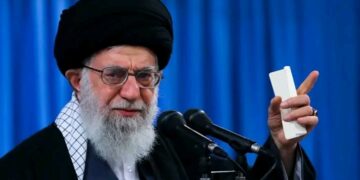On November 17, 2024, President Joe Biden made a significant decision regarding military support for Ukraine, lifting the ban on the use of long-range American missiles against Russian territory. This new policy permits Ukraine to deploy US-made Atacms rockets, which have a striking range of 190 miles (approximately 300 kilometers), specifically targeting Russian and North Korean forces stationed in the Kursk region. This development comes in direct response to the involvement of North Korean troops in the ongoing conflict, as they join forces with Russian military units against Ukraine.

The announcement of this policy shift was not made through a formal statement from the White House but was communicated through coordinated briefings to several major news outlets, including the New York Times, Washington Post, and news agencies like Reuters and Associated Press. Ukrainian President Volodymyr Zelenskyy acknowledged the change, emphasizing that any evidence of this new directive would manifest on the battlefield, stating, “Today, there’s a lot of talk in the media about us receiving permission for respective actions. But strikes are not carried out with words. Such things are not announced. Missiles will speak for themselves.”
Poland’s Foreign Minister, Radosław Sikorski, welcomed Biden’s decision, framing it as a necessary response to the escalating situation marked by North Korean troop involvement and intensified Russian missile strikes. He expressed that Biden’s actions were a clear message that resonated with Russian President Vladimir Putin.
In contrast, Russian officials reacted sharply to the news. Vladimir Dzhabarov, the first deputy head of Russia’s upper house international affairs committee, warned that the authorization could escalate tensions significantly, claiming, “This is a very big step towards the start of world war three.” This statement underscores the precarious nature of international relations as the conflict continues to evolve.
This marks the first instance where President Biden has granted Ukraine permission to utilize long-range weapons within Russian territory. However, the restriction will apply specifically to the Kursk region, where Ukraine previously launched incursions during the summer. The US has indicated that the weapons will be targeted at Russian and North Korean troops engaged against Ukrainian forces in this area, serving as a strategic message to North Korea. There is speculation that Biden may extend this authorization to other regions during his final months in office, with the first usage of the Atacms rockets expected to occur within days.
Simultaneously, the situation on the ground in Ukraine remains dire. Following a massive drone and missile assault on the Ukrainian energy grid—the most extensive attack in months—Kyiv announced nationwide energy rationing starting Monday. This offensive included approximately 120 missiles and 90 drones, marking a significant escalation in hostilities. President Zelenskyy characterized the assault as the work of “Russian terrorists,” highlighting the ongoing threat posed by Russian military operations.
In response to the latest developments, Poland and NATO allies have taken precautionary measures, scrambling jets to safeguard their airspace after reports of Russian drones and missiles violating Moldovan airspace. This proactive stance reflects the heightened vigilance among neighboring countries amid the ongoing conflict.
As the situation escalates, Ukrainian officials, including Foreign Minister Andrii Sybiha, condemned the recent attacks as a direct response from Moscow to diplomatic overtures from Western leaders, particularly referencing German Chancellor Olaf Scholz’s recent communication with President Putin. French President Emmanuel Macron echoed these sentiments, asserting that the attack demonstrated Putin’s unwillingness to pursue peace negotiations and underscoring the importance of continued support for Ukraine.
The presence of North Korean troops in the conflict adds an additional layer of complexity, with reports indicating that North Korea has sent an estimated 10,000 soldiers to Russia to assist in the war. This marks the first deployment of ground forces from Pyongyang since the Korean War, and there are indications that North Korea may be willing to send even more troops if their alliance with Russia deepens.
As world leaders gather for the G20 summit, UK Prime Minister Keir Starmer has indicated that discussions surrounding Ukraine will be a priority. He emphasized the need for increased support for Ukraine, particularly in light of the new involvement of North Korean forces, which he described as indicative of Russia’s desperation.
In summary, Biden’s decision to lift the ban on the use of long-range missiles by Ukraine represents a pivotal moment in the ongoing conflict, reflecting a broader strategy to counteract the increasing threats posed by both Russia and North Korea. The international community watches closely as the situation develops, with all eyes on the potential implications for security and stability in the region and beyond.
Post Views: 488
Tags: JOE BIDEN









